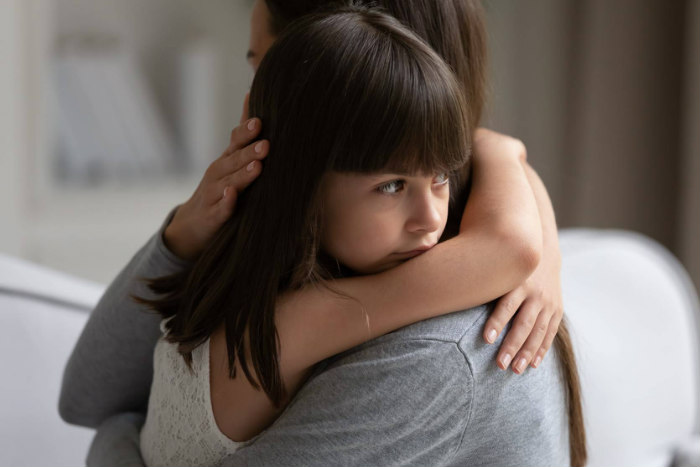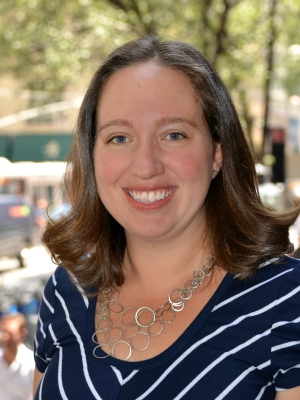
The world feels complicated and uncertain right now. Every day, a torrent of news comes out that can be difficult for adults to process, let alone children. As parents, we have an obligation both to keep our children safe and to give them the tools that they need to cope with a changing world. No matter who we are, how safe we think we are, or how smoothly our lives run, our children will eventually have to face something bad in the world. Here are a few ways to talk to them when the inevitable occurs.
If your children are very young…
Shield your very young children them from the news as much as you can. In our house, for example, we try not to talk about current events or bad things in front of our 2-year-old, since she is likely to repeat them, even if she doesn’t know what they mean.
Young children may pick up on your mood or the mood of others around them, but try to preserve routines and normalcy as much as possible. In the case of a death of a close family member or a prolonged illness in someone they see regularly, give them only the bare minimum of what they need to know, and try to answer any questions succinctly and directly. Don’t be surprised if they shrug and return to what they are doing. They will process in their own way and will likely return to you when they need to talk.
If you have a child in elementary or middle school…
Older children are likely to hear or take part in discussion of the news of the world – and not always in the way you would them to hear it. The school bus can be a precarious place for disseminating information! When something major is happening in the world (an election, a natural disaster, etc.), my husband and I try strike preemptively to ensure that our older child hears the news from us first, with the messaging and values that are important to us. We are also able to provide our child with language to discuss the topic when it inevitably comes up at recess or in class.
For children of all ages…
More than just knowing what happened, children need to feel safe – like the world isn’t crashing down around them. If you do not think they are in any immediate danger, say so, and tell them about the ways you plan to protect them. For example, you can say, “There was a hurricane in another country. If there were to be a hurricane here, we would go to a friend’s house out of the way of the storm so that we could stay safe.” If someone in your life is sick or has died, don’t sugarcoat the news, but only provide details if your child asks for them. Most importantly, tell them the truth so they know they can trust you.
If you are communicating news from the outside world, the same advice applies: Tell the truth and decide what your child needs to know in order to function in his or her daily life. If you are going to demonstrate or protest, explain to your child why you are protesting, who you are protecting, and what values you are standing up for. If your child understands that you are trying to keep others safe, it will contribute to their sense of safety in the world and show them a powerful example of how people cope when the world is changing. For example, I told my 4 ½-year-old about President Trump’s executive order on refugees, explained why refugees want to come here, and told him why his brother and I were going to protest and help refugees feel welcome in America. He asked a couple of questions, and then went back to playing with his toys.
Proverbs teaches, “Educate a child according to his own path, and when he is old, he will not depart from it.” I understand this text to mean that we, as parents, have an obligation to speak to our children from a place of our Jewish values in a way that they will understand. That is what will allow them to both grapple with difficult news and move forward from it.
If you think your child is being affected by bad news beyond what you or they can handle, there is no shame in asking for help from a teacher, clergy person, or mental health professional. Sometimes the best way we can help our children cope with trauma and trouble is to show them that there are other people in society who can help them move through the darkness.

